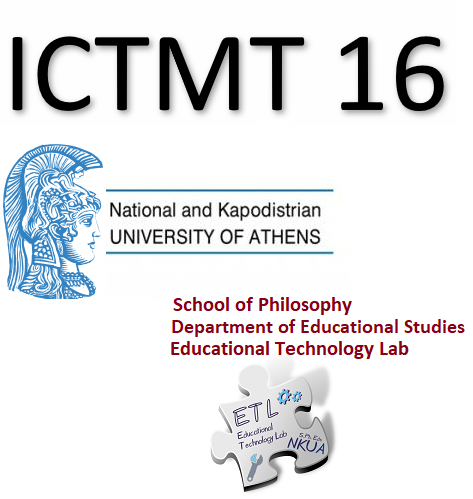The upcoming ICTMT 16, in Athens, will adopt a transformational approach to Mathematics Education. We will welcome perspectives trying to make sense of mathematics education in an era of intense, unpredictable, complex, ill-defined societal and digital transformation. How can digital technologies become an integral tool in the ways rationality and mathematical thinking is cultivated in schools transforming from an academic to a citizenship paradigm? How can we use digital media to instill rationality and mathematical understanding in individual and collective citizenship? What is the value of mathematics in the so-called 21st century skills movement in education focusing on trans-disciplinarity and the grappling with socio-scientific issues? What can STEM and STEAM bring to mathematics education in this context? How can programming, computational thinking and modeling bring added educational value to the teaching and learning of Mathematics? What kind of educational practices and uses of digital media can we expect to value in the digital transformation era?
Under this frame, the conference will be organized in the following themes.
1. Designing technology for a transforming society
for mathematical learning and its assessment in the Digital Transformation Era – a focus on theoretical or actual ‘designs’ with contributions from researchers, industry and teachers.
2. Making sense of educational practice in a transforming society
with and through technology – a focus on the work of teachers and lecturers,
where the classroom might be geographically located or mobile. What kind of practice can we envisage having value in the near future? Again, contributions could be both theoretical and practical.
3. Fostering mathematical collaboration and communication
with and through technology – a focus on the communications’ aspect of
technology, including assessment strategies. What kinds of communication may promote mathematical thinking and rationality in the Transformation Era.
4. Understanding the value of Analytics and AI in Mathematics Education
how can mathematical understandings support the understanding of analytics and algorithms used in popular media? What kind of user information could be capture-worthy for mathematics education? How can analytics support rather than restrict creativity and agency in meaning-making?
The connection between theory and practice around using digital media for teaching, investigating, and learning mathematics, as a fertile ground to discuss the challenges to come and possible pathways for the next years in mathematics education. In a social environment that changes in multiple directions, what does academic research (theory) gain from the study of practice in domains like the role of teachers and students, the teaching profession, the curriculum design, the learning outcomes concerning competencies, assessment of the learning and teaching procedure, functionalities of novel digital tools, etc.? And does practice benefit from new theoretical approaches, or classical ones implemented innovatively, and how?

